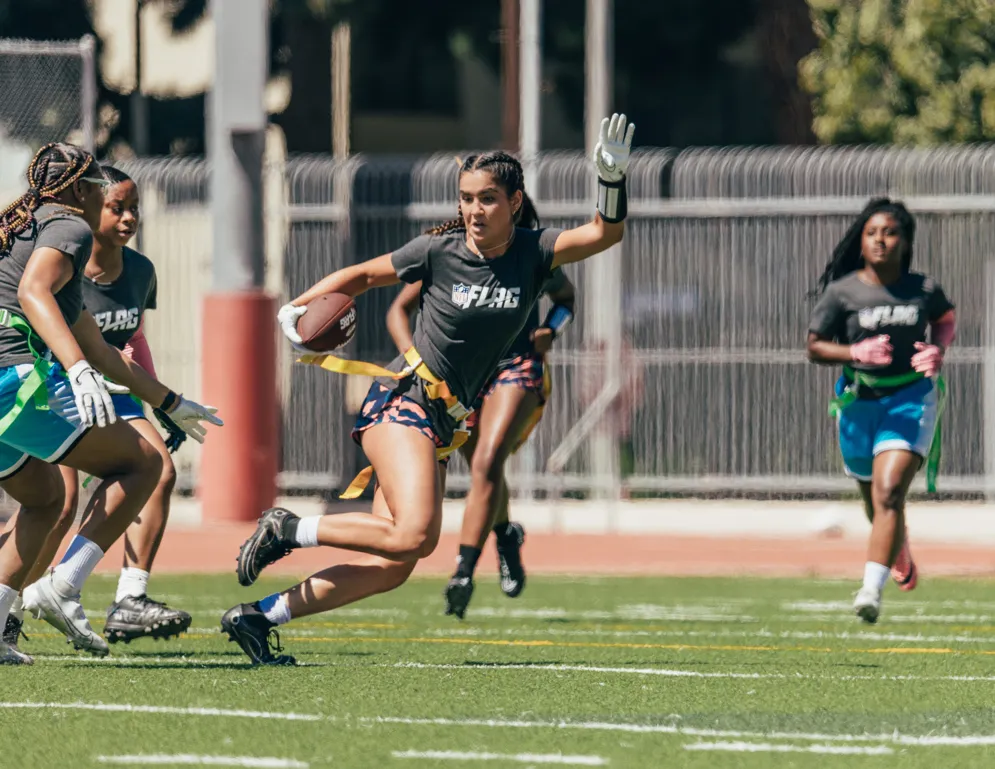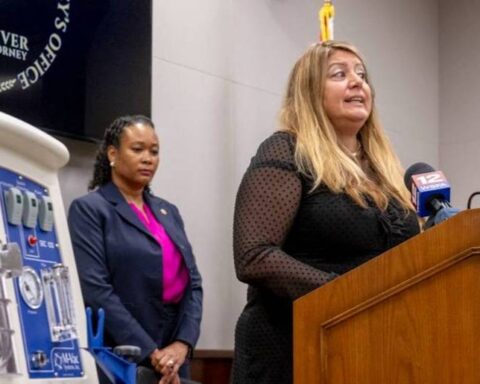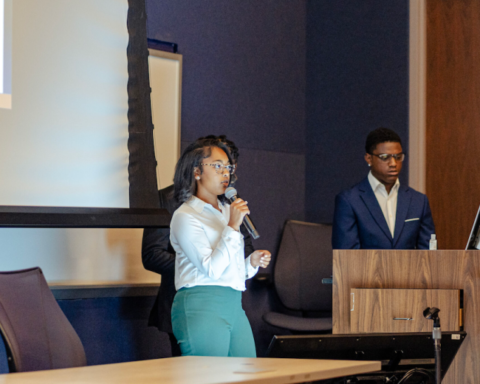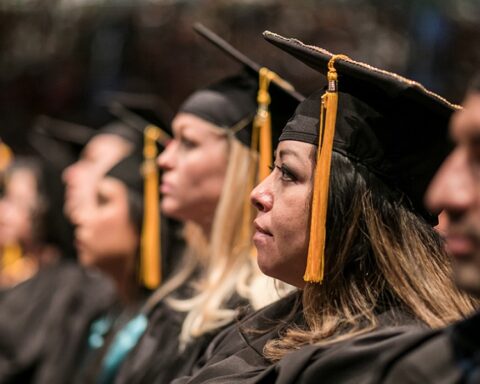By Tia Greene
Historically Black Colleges and Universities (HBCUs) have become key players in the rapid growth of women’s flag football. This offers new opportunities for female athletes in a sport that is gaining national and global recognition.
With support from organizations like the NFL and the NAIA (National Association of Intercollegiate Athletics), HBCUs are now at the forefront of developing competitive women’s flag football programs.
Flag football for high school girls is rapidly emerging as a popular and transformative sport, offering new opportunities and pathways for young female athletes.
At just 17, Ki’Lolo Westerlund is rewriting the playbook for women’s flag football. She landed a starring role in the NFL Flag 50 commercial that aired during Super Bowl LIX—a spot that had her sharing screen time with NFL stars like Myles Garrett, Justin Jefferson, and Marshawn Lynch.
While millions watched her performance on screens worldwide right after halftime,Westerfund was actually at the game in New Orleans with her father, soaking in the live atmosphere and the personal triumph of her achievement.
“It was an honor,” Westerlund said recently in a phone interview withe the New York Times. “That’s kind of when it all hit me. I was emotional. And I was like, ‘Wow, this is happening. This is crazy. All the people around me were like — wait, that’s you.”
Last April, HBCU Alabama State, an FCS program, made history by becoming the first Division I school to launch a women’s flag football program. This groundbreaking move not only expanded opportunities for female athletes but also set the stage for a new era in collegiate sports.
This past offseason, Alabama State took another monumental step by awarding the first-ever DI scholarship in women’s flag football. The scholarship went to Westerlund, a decision that reflects both athletic excellence and a commitment to trailblazing leadership.
Alabama State head coach Jennifer Constable, who spearheaded the initiative, was determined to reward an athlete who could transform the game on the field and serve as a role model off it.
“It was honestly a no-brainer,” Constable said recently. “She was my No. 1 pick to do that. … She’s going to be that person that kids are going to look up to.”
Westerlund’s collegiate journey is just the beginning of a much larger vision. While she’s excited to compete at the collegiate level, her ultimate ambition is to represent her country in the 2028 Olympics.
For her, the Olympic stage isn’t merely about personal achievement—it’s an opportunity to showcase the growing strength and potential of women’s flag football on a global platform.
“Absolutely,” Westerlund said when asked if she believes people are becoming more accepting of girls and women playing football. “They are coming around and trying to understand it.
“And for those that still don’t, they will soon.”
Just as Alabama State broke ground with its program, another HBCU entity is forging a new path.
Winston-Salem State University hosted one of the two Central Intercollegiate Athletic Association (CIAA) Round-up events on March 5-6 at Civitan Park. This inaugural event brought together top-tier talent from across the conference and highlighted the competitive of the league’s eight programs.
Virginia Union University hosted a second round-up at the end of the month to set up position for the inaugural flag football championship. The round up will be held at Johnson C. Smith University on Friday and Saturday to declare a champion.





